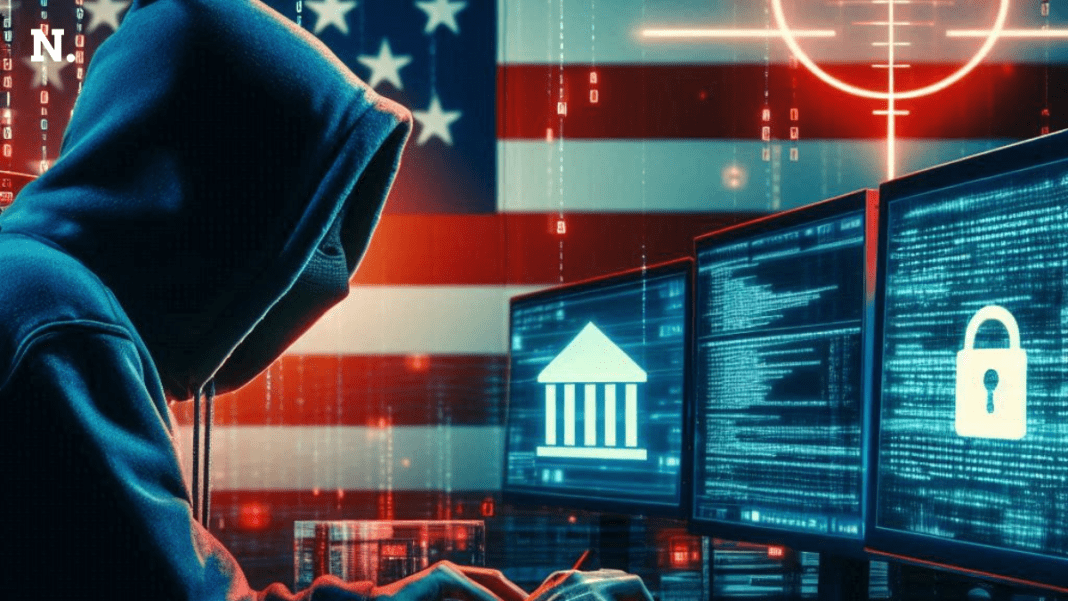Cyber Attacks Follow U.S. Strikes on Iran
After recent American military strikes on Iran’s nuclear sites, hackers connected to Iran have started attacking companies in the United States. These hackers are believed to be angry about the strikes and are now focusing on American banks, defense companies, and energy businesses like oil and gas.
The cyberattacks have not yet caused any major problems in the U.S., like shutting down power or harming the economy. But experts warn that things could get worse, especially if the fragile peace between Iran and Israel falls apart. Some hacker groups that support Iran say they are ready to launch even bigger digital attacks on the United States.
Cybersecurity experts believe Iran—and even countries like Russia, China, and North Korea—might see this as a reason to invest more in cyberwarfare. Unlike traditional weapons like missiles or fighter jets, cyberattacks are cheap and hard to trace. This makes them a powerful tool, especially for countries that want to send a message without going to war.
The U.S. is a strong military power, but many parts of American life—like banking, power systems, and water supplies—depend on technology. If hackers break into those systems, they could cause confusion and damage without ever stepping foot on U.S. soil.
Pro-Iran Hackers Claim Responsibility for Attacks
Over the weekend, two hacker groups that support the Palestinian cause claimed they attacked over a dozen U.S. companies. These included banks, aviation businesses, and oil companies. They shared their actions online, encouraging others to join in.
These weren’t the kinds of attacks that steal data. Instead, they were denial-of-service attacks. That means the hackers flooded websites with fake traffic, trying to shut them down or make them unusable. One group even posted that it would be increasing the number of attacks.
Because of this, the U.S. government is now on high alert. The Department of Homeland Security issued a warning about the increased danger from Iranian hackers. Another agency, responsible for keeping vital systems safe, asked companies to protect things like water plants, oil pipelines, and electricity systems.
Iran isn’t as advanced in cyber technology as countries like China or Russia, but it’s known for causing chaos online. In the past, it has used cyberattacks to scare other countries, steal information, or make a political point.
NASCAR Hit by Cyberattack from Medusa Ransomware Group
Even if the Iranian government decides to stop its attacks for now, some hacking groups could still continue acting on Iran’s behalf. Some of these groups may be connected to Iran’s military or spy agencies. Others may just be independent supporters who want to help Iran by attacking its enemies online.
There are over 60 known hacker groups tied to Iran, according to one security company. These groups may not bring down entire systems, but they can still cause damage, spread fear, and confuse people.
One recent example happened after the October 7, 2023, attack by Hamas on Israel. A group of hackers broke into an emergency alert app used by Israeli citizens and sent fake messages about a nuclear missile being launched. The goal wasn’t to destroy anything—it was to scare people.
U.S. Cybersecurity Teams Face Budget Cuts
While cyber threats from Iran grow, the United States has been cutting back on some of its cybersecurity efforts. The government has reduced funding for digital protection programs and even fired some key people in charge of U.S. cyber defense.
One agency that helps protect election systems has lost staff and money. Other important intelligence departments have also seen reductions. Experts are concerned that these cutbacks make the U.S. more vulnerable to online threats.
Hackers Spied on U.S. Banking Regulator’s Confidential Emails for Nearly 2 Years
Meanwhile, the recent conflict between Iran and Israel shows how cyber tools are becoming just as important as bombs and guns. For example, Israel’s operations against Iran involved secret digital spying to find and track important targets.
Protecting the U.S. from cyberattacks will require not just better software and stronger networks, but also educating more people in cybersecurity. Some private investors are already supporting this by funding schools and research centers focused on digital safety.
Right now, the world is in a new kind of arms race—not just with weapons, but with computer code. And while the U.S. leads in traditional war tools, hackers are proving that the next battles might be fought through the internet.





